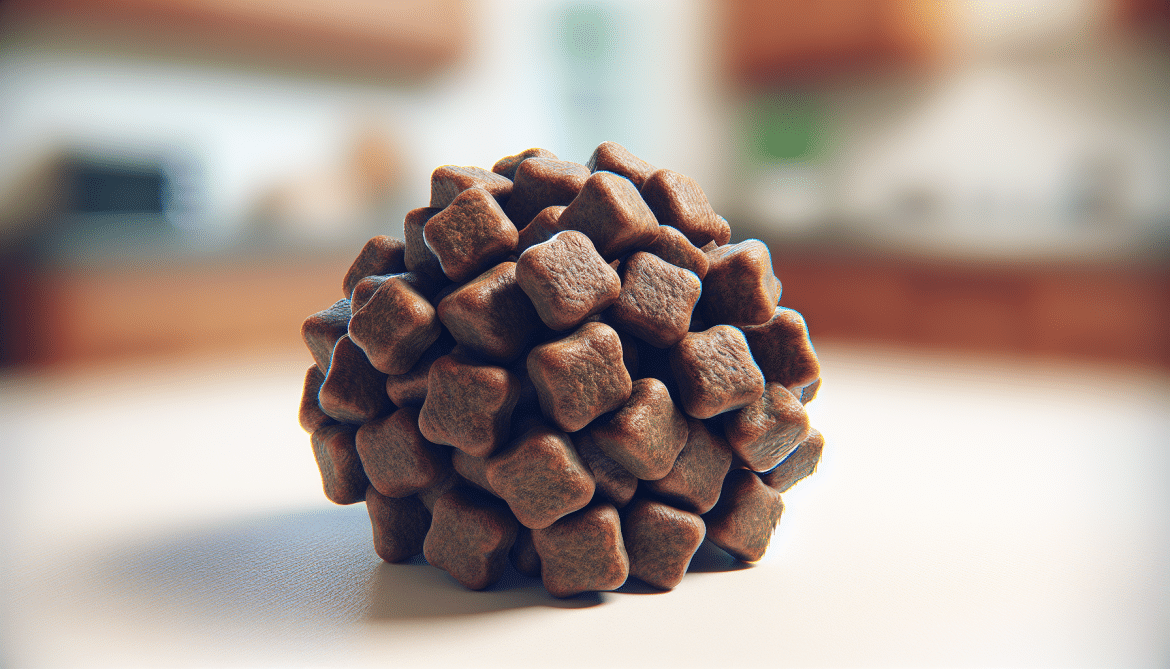Are you struggling to find the perfect dog food that suits your furry friend's specific needs? Look no further! In this article, we will provide you with valuable tips on how to choose the ideal dog food based on your dog's breed. Whether you have a playful Labrador Retriever or a feisty Chihuahua, we've got you covered. By considering various factors such as age, size, and activity level, you'll be able to select a nutritious and delicious meal that will keep your canine companion happy and healthy. Say goodbye to confusion and hello to wagging tails with these helpful suggestions for choosing the perfect dog food. Choosing the right dog food is crucial for the overall health and well-being of your furry friend. With so many options available in the market, it can be overwhelming to make the right choice. To help you in this process, here are some tips for choosing the perfect dog food that suits your dog's breed.
Consider Your Dog's Breed
Understanding your dog's breed-specific nutritional needs is essential when selecting the right dog food. Different breeds have different dietary requirements, so it's important to tailor their diet accordingly. For example, large breed dogs may require a diet with controlled levels of calcium and phosphorus to support healthy bone development.
Additionally, consider your dog's size and growth rate. Large and giant breeds have specific dietary needs, as rapid growth can put stress on their bones and joints. Look for dog food formulas that are specifically formulated for large breed puppies to ensure appropriate nutrient levels for their growth.
Energy levels also play a significant role in choosing the right dog food. High-energy breeds, such as Border Collies or Siberian Huskies, may require a diet with higher fat and protein content to fuel their active lifestyles. On the other hand, low-energy breeds, such as Bulldogs or Pugs, may benefit from a diet with lower calorie content to prevent weight gain.
Identify Your Dog's Life Stage
Apart from breed-specific considerations, it's essential to take into account your dog's life stage when selecting dog food. Dogs go through different stages in their lives, each with its unique nutritional requirements.
Puppy food is specially formulated to support their rapid growth and development. Look for puppy food formulas that contain higher levels of protein and essential nutrients like DHA, which promotes brain and vision development.
Adult dog food is suitable for dogs that have reached their full growth. These formulas provide the necessary balance of nutrients to maintain their overall health.
Senior dog food is designed for older dogs who may have specific dietary needs. Look for senior dog food formulas that contain ingredients that support joint health and provide the optimum levels of nutrients for aging dogs.

This image is property of images.pexels.com.
Consult with Your Veterinarian
Your veterinarian is your best resource when it comes to determining the right dog food for your furry companion. They have extensive knowledge of your dog's specific health needs and can provide personalized recommendations.
Schedule a visit with your veterinarian and discuss your dog's dietary requirements. They can guide you in selecting the ideal dog food based on your dog's breed, life stage, and any existing health concerns. In some cases, they may recommend prescription diets tailored to your dog's specific needs.
Remember, your veterinarian's input is invaluable, and they can help you make the best decision for your furry friend's nutrition.
Read the Ingredient List
One of the most crucial aspects of choosing the perfect dog food is reading and understanding the ingredient list. The ingredients used in a dog food formula can significantly impact your dog's health and well-being.
Look for dog food formulas that have real meat listed as the first ingredient. High-quality proteins like chicken, beef, or fish should be the primary source to meet your dog's protein requirements.
Avoid controversial ingredients like artificial preservatives, flavors, and colors. These additives can potentially have detrimental effects on your dog's health.
Consider the inclusion of whole grains and fiber in the ingredient list. Whole grains like brown rice or oatmeal can provide carbohydrate energy, while fiber aids in digestion.
Grain-free options are also available for dogs with grain sensitivities or allergies. However, it's essential to consult with your veterinarian if you suspect your dog has specific dietary requirements.
Take note of any allergies or sensitivities your dog may have. Look for dog food formulas that are specifically formulated for dogs with allergies or sensitivities to support their overall health and well-being.

This image is property of images.pexels.com.
Avoid Artificial Preservatives and Fillers
When choosing the perfect dog food, it's crucial to avoid artificial preservatives and fillers. These ingredients offer little to no nutritional value and can potentially harm your dog's health.
Identify harmful preservatives like BHA, BHT, and ethoxyquin. These preservatives have been linked to various health issues and should be avoided in your dog's food.
Artificial colors and flavors are another aspect to stay away from. These additives are unnecessary and can lead to health problems in the long run.
Instead, opt for natural and organic dog food options. These formulas contain high-quality ingredients and are typically free from artificial additives and fillers. Look for dog food formulas that use natural preservatives like vitamin E or rosemary extract.
Freshness indicators, such as the "best by" date or packaging that protects against oxidation, can also ensure the quality and freshness of the dog food.
Check for Adequate Protein
Protein is an essential component of your dog's diet and plays a vital role in their overall health. When selecting dog food, it's important to ensure that it provides adequate protein content.
Determine the protein sources used in the dog food. Look for animal-based proteins like chicken, beef, or fish. These proteins are highly digestible and provide essential amino acids for your dog's overall well-being.
Consider the balance between animal and plant protein sources. While animal-based proteins are typically more beneficial, plant-based proteins like legumes or peas can also provide supplementary protein.
Check the protein content mentioned on the dog food packaging. The protein content should meet the Association of American Feed Control Officials (AAFCO) guidelines for your dog's specific life stage.

This image is property of images.pexels.com.
Look for High-Quality Carbohydrates
Carbohydrates serve as an important energy source for your dog. When choosing dog food, it's crucial to look for high-quality carbohydrates that provide the necessary energy and nutrients.
Identify beneficial carbohydrates like whole grains, fruits, and vegetables. Whole grains such as brown rice or oatmeal are nutrient-dense and provide sustained energy.
Consider the option of grain-free diets if your dog has grain sensitivities or allergies. However, consult with your veterinarian to determine if this is appropriate for your dog's specific dietary requirements.
Take into account the digestibility of the carbohydrates. Highly digestible carbohydrates ensure that your dog can efficiently absorb and utilize the nutrients from the dog food.
Consider Healthy Fats
Healthy fats are an essential part of your dog's diet and play a role in various bodily functions. When choosing dog food, consider the inclusion of beneficial fats.
Look for dog food formulas that contain omega-3 and omega-6 fatty acids. These fatty acids support a healthy coat, skin, and immune system. Ingredients like fish oil or flaxseed are excellent sources of these fatty acids.
Consider the source of fats used in the dog food. Animal fats like chicken fat or fish oil are highly digestible and provide essential nutrients. Plant-based fats like sunflower oil or canola oil can also be beneficial, but it's important to ensure that they are used in moderation.
Avoid trans fats, as they have been linked to various health issues in both humans and dogs.

Consider Your Dog's Special Needs
Every dog is unique, and some may have special dietary needs or health concerns. When choosing the perfect dog food, it's important to consider these special needs and cater to them accordingly.
Weight management is a common concern for many dog owners. If your dog needs to lose or gain weight, look for dog food formulas that support weight management. These formulas are typically lower in calories and have controlled fat and protein levels.
Food allergies and sensitivities can be challenging to manage. If your dog has specific dietary restrictions, consider dog food formulas that are specifically formulated to meet these needs. These formulas typically exclude common allergens like wheat, soy, or dairy.
Joint health is crucial, especially for large or senior dogs. Look for dog food formulas that contain ingredients like glucosamine and chondroitin, which support joint health and mobility.
Dental health is another important consideration. Some dog food formulas have specially designed kibble shapes or added ingredients that promote dental health, such as reducing plaque and tartar buildup.
Digestive health is essential for overall well-being. Look for dog food formulas that contain probiotics or prebiotics, which promote a healthy gut environment and aid in digestion.
Skin and coat health can be improved with the right dog food. Consider dog food formulas that contain ingredients like fish oil or flaxseed, which provide essential nutrients for a healthy coat and skin.
Some dogs may have specific dietary requirements due to medical conditions or special circumstances. Consult with your veterinarian to determine if your dog requires a special diet and what options are available.
Choosing the perfect dog food is a crucial responsibility as a dog owner. By considering your dog's breed, life stage, and special needs, consulting with your veterinarian, and reading the ingredient list, you can make an informed decision that ensures your furry friend receives the best nutrition for a happy and healthy life.


